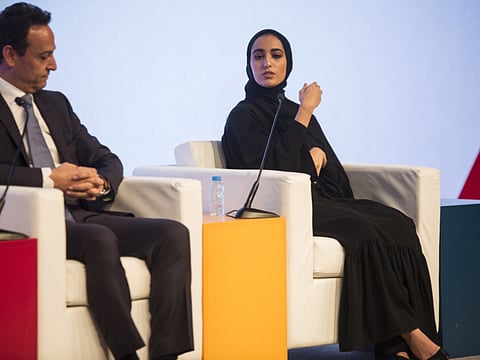Call for better guidance to students
Youth and experts at WorldSkills conference say industry leaders must be roped in to tweak curricula

Abu Dhabi: Today, Mariam Al Hashemi is an inventor of solar panels. While the 20-year-old Emirati looks at commercialising her designs, she has also studied five languages, and is pursuing a bachelor degree in Economics.
“An education is no longer a ticket to a job, so I want to diversify my options by gaining a broad education that is also complemented by a range of soft skills,” Al Hashemi said in the capital on Tuesday.
“While students today know that they have to develop and hone multiple skill sets to succeed, we also need to have access to more focused career guidance, including from industry experts, to see how we can apply these skills,” she added.
Her call for greater guidance and training, voiced at a panel during WorldSkills conference, was also echoed by a panel of education experts and industry leaders. The conference itself, which was held alongside the WorldSkills 2017 technical and vocational skills competition, saw 30 ministers and scores of business leaders discussing the changing face of industry and education across the world.
Al Hashemi, who also helped draw up the Youth Declaration that was presented at the conference on Monday, said that young people today are anxious because have very little idea of the opportunities available to them once they finish their academic or technical education.
“I spoke to dozens of my friends and acquaintances in preparation for this panel, and none of them knew what they would really hope to succeed in. So even though we are all equipping ourselves as best as we can, the [disconnect between industry and education] places us at a disadvantage, especially in an era when workers will end up holding multiple jobs throughout their lifetime,” she told Gulf News.
To bridge this disconnect, other panellists suggested greater involvement in education by business leaders.
“Industry experts and leaders can play a more active role, even in the design of education systems and curricula. If they can convey the outcomes they expect from workers, it will help align educational programmes to the needs of the job market,” said Wissam Hachem, vice-president for learning and development at Etihad Airways.
Today, most students must wait for six months to a year to find a job after graduating, and in the majority of cases, it is in a field different from their field of education, Hachem added.
Dr Arif Al Hammadi, executive vice-president at Khalifa University, agreed with the need for better student counselling.
“With the UAE looking at implementing greater artificial intelligence, jobs such as receptionist and airport clerks may be replaced by automation soon. Students need to be informed about this, and also steered towards jobs that are irreplaceable, such as human resources managerial roles,” he said.
Dr Al Hammadi also recommended that universities set up guidance centres to support entrepreneurship among students, which can provide lasting career pathways for them.
Sign up for the Daily Briefing
Get the latest news and updates straight to your inbox


